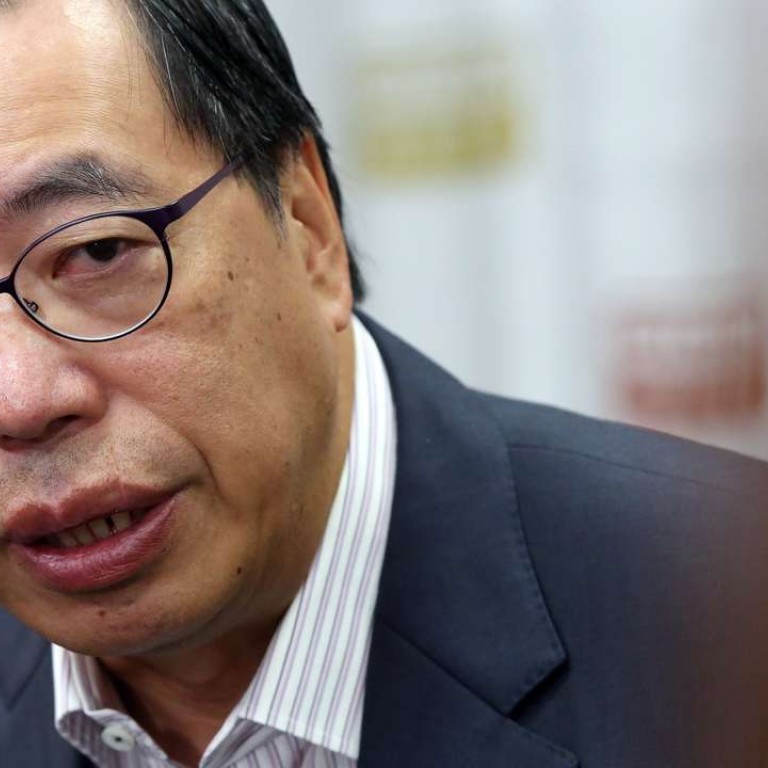
Andrew Leung’s business ties raise conflict of interest question for Hong Kong Legco president hopeful
Pro-establishment legislator expected to win post with backing from most of his camp
The favourite to be the next Legislative Council president had his suitability for the job called into question on Monday, after revealing his complex web of business interests in the members’ register.
According to the list, published on the Legco website, Andrew Leung Kwan-yuen , who runs a clothing business, holds shares in 11 companies – down from 14 in the previous term – and is director of seven of them.
Most of them are investment, trading and holding companies.
The industrial sector legislator is also director of 11 other firms, including being a non-executive director of Dah Sing Bank and Harbour Centre Development, the latter held by listed company Wharf (Holdings) and others.
Asked how he would handle the remunerated directorships and shares to avoid conflicts of interest if he were elected president, Leung said: “There are rules in Legco on how to deal with this. I will handle it in appropriate ways at an appropriate time.”
He said there would be few of conflicts of interest because the president by convention did not cast a vote, and “if I was president, I’d approve any motions or bill amendments as long as they do not breach the Legco rules”.
The pro-establishment lawmaker, who has kept his functional constituency seat unopposed since 2004, is set to head the new Legco with backing from most of his camp, and will answer Legco members’ questions in a special forum for candidates on Tuesday alongside the democratic camp’s James To Kun-sun.
Leung would not say whether he would resign from some of the directorships. “I have personal companies and family companies as well as others,” he said. “I can’t give up my family business in order to run for the presidency.”
Nor did he think putting the shares in a trust was desirable, because a trust “had no transparency”. He would not give details of the properties held by his companies, saying his declarations were done in accordance with the rules.
To said Leung should reduce the potential conflicts of interest, and that if he held on to the interests he would have to excuse himself from meetings if discussions on “collusion” between the government and businesses arose.

